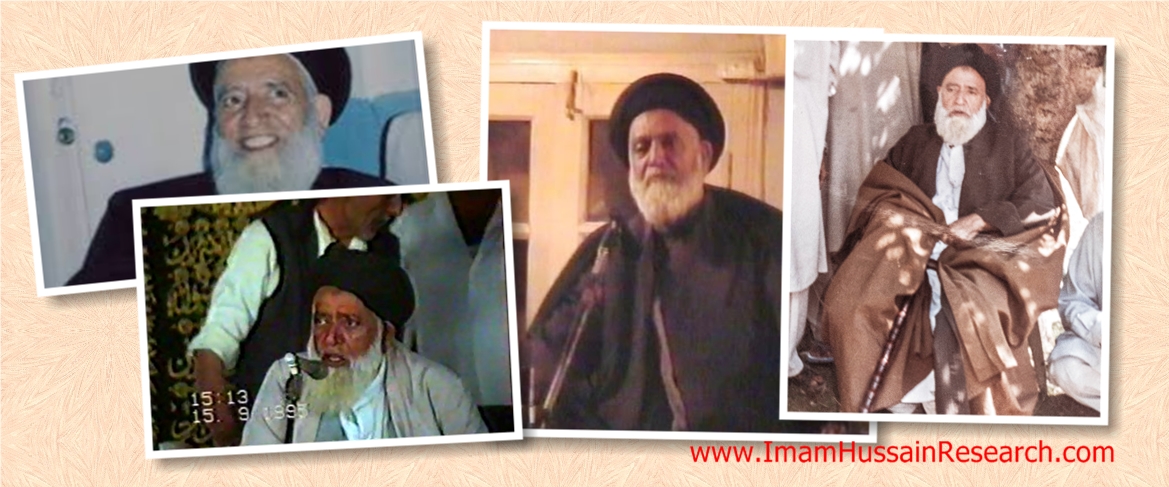Aga Syed Mustafa Al-Moosavi Al-Safavi: A Luminary of Kashmiri Shia Scholarship
Early Life and Education
Aga Syed Mustafa Al-Moosavi Al-Safavi was born on 2 February 1924, into the revered Al-Moosavi Al-Safavi family in Kashmir, known for their profound contributions to Islamic scholarship and leadership. His father, Ayatullah Aga Syed Ahmad, and his grandfather, Ayatullah Aga Syed Muhammad, were both eminent religious scholars. From a young age, Aga Syed Mustafa was immersed in the study of the Quran and Islamic theology. His early education was meticulously guided by his grandfather, his father, his uncle Ayatullah Aga Syed Yousuf, and Haji Amin Sahab.
Succession and Higher Studies
At the age of 22, Aga Syed Mustafa faced the immense loss of his father. The community, recognizing his potential, sought to appoint him as his father’s successor. However, in a demonstration of humility and respect for his uncle, he declined the position and endorsed Ayatullah Aga Syed Yousuf to take over the family’s traditional responsibilities. This decision showcased his dedication to the greater good of his community and his deference to experienced leadership.
Following his father’s wish, Aga Syed Mustafa pursued higher studies at the prestigious Hawza ‘Ilmiyah Najaf in Iraq, a leading center for Shia Islamic learning. His time in Najaf further deepened his knowledge and understanding of Islamic jurisprudence and theology.
Return to Kashmir and Leadership
Upon returning to Kashmir, Aga Syed Mustafa dedicated himself to assisting his uncle, Ayatullah Aga Syed Yousuf, in managing religious affairs. He played a pivotal role in heading the Sharia Court, which had been established over a century earlier by Ayatullah Aga Syed Mehdi Sarkaar. His leadership in the court reinforced its importance in administering justice based on Islamic principles within the Shia community.
Promotion of Wilayat Al-Faqih
A significant part of Aga Syed Mustafa’s legacy was his contribution to introducing and promoting the concept of Wilayat Al-Faqih in Kashmir, alongside his uncle. This doctrine, advocating for the guardianship of Islamic jurists, was central to Shia political thought and governance. Their efforts were instrumental in aligning Kashmiri Shia practices with broader Shia Islamic movements, particularly those influenced by the Iranian Revolution.
In 1980, Ayatullah Khamenei, a key figure in the Iranian Revolution and future Supreme Leader of Iran, was invited to Kashmir by Ayatullah Aga Syed Yousuf. Ayatullah Khamenei’s address at the historic Jamia Masjid Srinagar was a landmark event that highlighted the deep connections between Kashmiri Shia Muslims and the broader Shia world.
Later Years and Death
Aga Syed Mustafa continued to serve his community with unwavering dedication until his health began to decline. Despite his illness, he remained a central figure in the religious and social life of Kashmiri Shia Muslims. He passed away on 21 August 2002, leaving behind a legacy of profound religious scholarship and community leadership. His funeral in Budgam was attended by thousands, reflecting the deep respect and admiration he had earned over his lifetime. He was laid to rest in the ancestral shrine in Budgam, Kashmir.
Legacy
Aga Syed Mustafa Al-Moosavi Al-Safavi’s life and work remain a beacon of religious devotion, scholarship, and community service. His contributions to Islamic jurisprudence, his efforts to promote Wilayat Al-Faqih, and his leadership in the Sharia Court have left an indelible mark on the Shia community in Kashmir. His legacy continues to inspire future generations of scholars and leaders, preserving the rich heritage of Islamic learning in the region.

